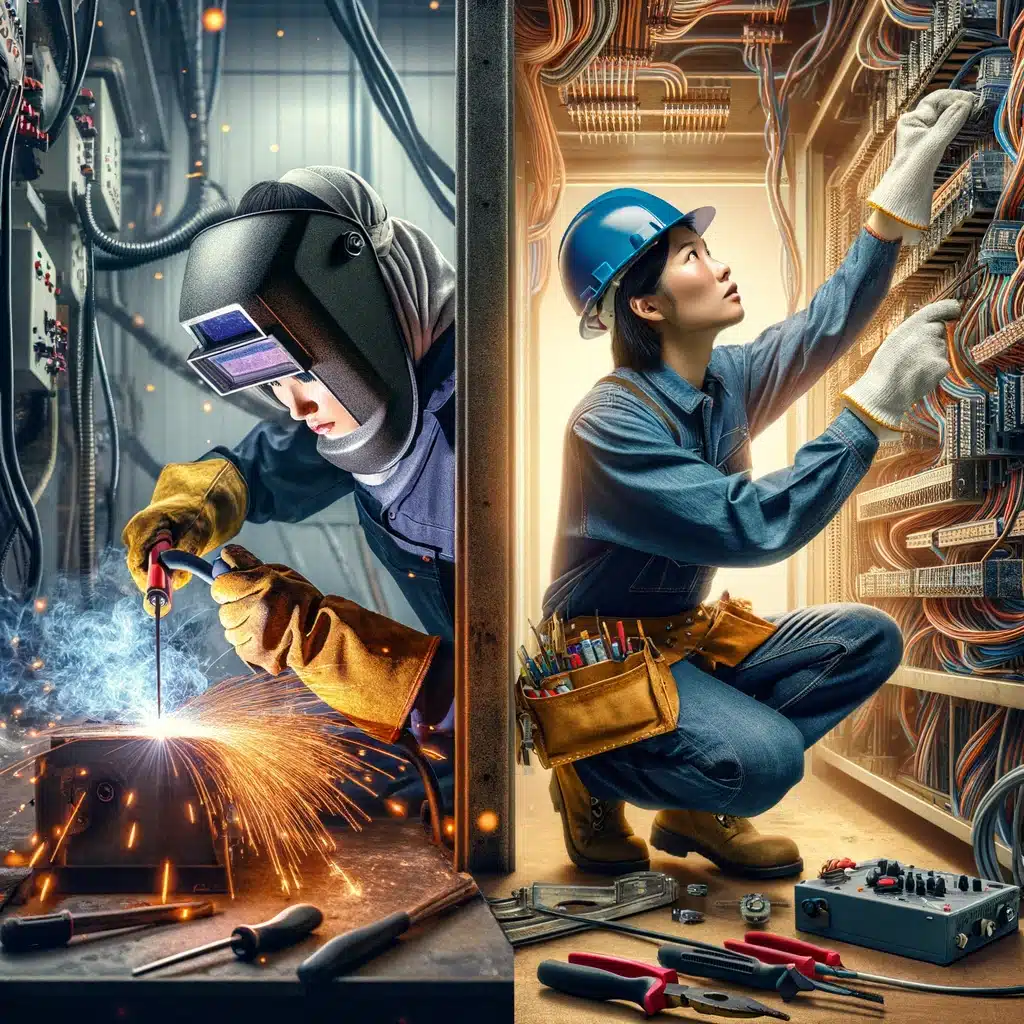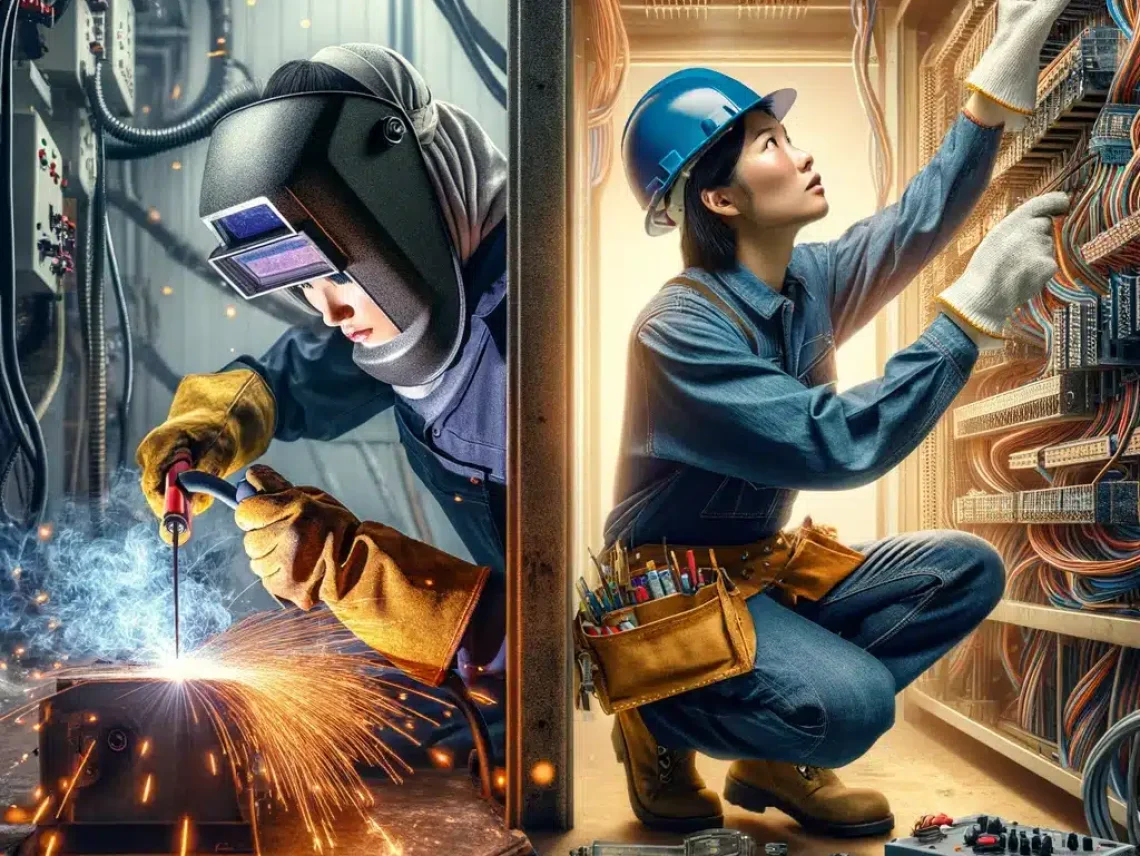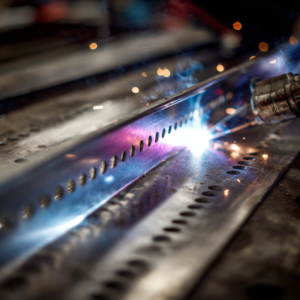
Tennessee Welding Jobs: Opportunities, Skills, and Career Growth

Why Welding Careers in Tennessee Are Thriving
Tennessee has long been a hub for manufacturing, fabrication, and industrial growth. With its strong infrastructure, presence of energy industries, and growing demand for skilled trades, welding remains one of the most in-demand careers in Tennessee.
Unlike purely technical articles that explore welding challenges, this guide focuses on the career opportunities, salaries, and skills needed to secure welding jobs in Tennessee. Whether you’re new to welding or looking to advance, Tennessee offers pathways for growth across industries such as aerospace, nuclear, pressure vessel fabrication, and heavy industrial construction.
For more on welding as a skilled trade compared to other industries, check out this resource: Is Welding Harder Than Becoming an Electrician?.
Top Industries Hiring Welders in Tennessee
Manufacturing & Fabrication – From custom fabrication shops to industrial projects, skilled welders are essential for precision work.
Aerospace & Energy – Specialized welding roles in aerospace and nuclear sectors demand certifications and advanced techniques.
Pressure Vessel Construction – Companies like Red River specialize in pressure vessel design and fabrication, creating steady demand for welders.
Infrastructure Projects – Bridges, pipelines, and modular skids require welders trained in critical welding techniques.
Curious about advanced processes in welding? Explore Essential Welding Techniques Used by Fabricators.
Skills and Certifications Employers Value
To stand out in Tennessee’s welding job market, you’ll need:
Certifications: Becoming a Certified Welding Fabricator (CWF) adds credibility and job security.
Specializations: Fields like underwater welding, aerospace, and nuclear offer higher salaries and opportunities. Learn more about which type of welder earns the most.
Technical Mastery: Knowledge of techniques like back gouging, MIG/TIG, and arc welding.
Adaptability: Welders must adjust to different environments, from fabrication shops to fieldwork.
For deeper insights, read Demystifying Welding and Fabrication.
Salary Expectations for Welders in Tennessee
Entry-Level Welders: $38,000–$45,000 annually
Experienced Welders: $50,000–$65,000
Specialized Welders (Aerospace, Nuclear, Underwater): $70,000+
(Stats adapted from the U.S. Bureau of Labor Statistics and Indeed Welding Jobs Tennessee).
These numbers vary by location (Nashville, Knoxville, Memphis) and the sector you’re working in.
Where to Find Welding Jobs in Tennessee
Local Employers: Manufacturing companies and industrial contractors.
Job Boards: Indeed, ZipRecruiter, and Glassdoor.
Apprenticeships: Many Tennessee unions and trade schools offer training that leads directly to employment.
Direct Fabricators: Businesses like Red River provide welding career opportunities for those with advanced skills in pressure vessels and modular systems.
Forging Your Welding Future in Tennessee
Welding is more than a job—it’s a career that shapes infrastructure, industries, and futures. Tennessee is rich with opportunity for welders at every skill level. By gaining certifications, mastering advanced welding techniques, and targeting high-demand industries, you can build a stable, rewarding career.
Ready to Take the Next Step?
At Red River, we believe in American values, craftsmanship, and opportunity. If you’re seeking to build a career in welding or need expert welding services reach out to us today. Let’s forge success together.
Frequently Asked Questions
1. What are the most common welding jobs in Tennessee?
Manufacturing, aerospace, energy, and pressure vessel fabrication are the top sectors.
2. How much do welders earn in Tennessee?
Wages range from $38,000 for beginners to over $70,000 for specialized welders.
3. Do I need certification to get a welding job in Tennessee?
While not always required, certifications like CWF greatly improve job prospects.
4. Which Tennessee cities have the most welding job opportunities?
Nashville, Memphis, Chattanooga, and Knoxville are the primary hubs.
5. How can I move into specialized welding roles?
By pursuing advanced certifications and focusing on industries like aerospace or nuclear.
Key Takeaways
Tennessee offers diverse opportunities for welders across industries.
Certifications and specializations increase job security and salary potential.
Salaries vary widely, with advanced welders earning $70,000+.
Major hiring hubs include Nashville, Knoxville, Memphis, and Chattanooga.
Partnering with companies like Red River ensures stable career pathways.
Related Blog Post
- What is fabrication vs welding?
- What is the hardest welding job?
- Is welding and fabrication difficult?
- What is a certified welding fabricator?
- What type of welding do fabricators use?
- What makes more construction or welding?
- What type of welder makes the most money?
- Is a sheet metal worker the same as a metal fabricator?
- What is the job description of a welding metal fabricator?
Solutions
In the realm of industrial solutions, Red River emerges as a pioneer, offering a diverse range of custom-engineered products and facilities. Among our specialties is the design and production of Custom/OEM Pressure Vessels, meticulously crafted to meet individual client requirements, ensuring performance under various pressure conditions. Our expertise extends to the domain of prefabrication, where Red River leads with distinction.
The company excels in creating prefabricated facilities, modules, and packages, reinforcing its stance as a forerunner in innovation and quality. This proficiency is further mirrored in their Modular Skids offering, where they provide an array of Modular Fabricated Skid Packages and Packaged equipment. Each piece is tailored to client specifications, underlining their commitment to delivering precision and excellence in every project they undertake.
Related Blog Post

How a Glycol System Works

Ethylene Glycol Water: A Complete Heat Transfer Guide

Water Filter Replacement

Why Use Stainless Steel Sheet Metal Fabrication?

How Does Stainless Steel Sheet Metal Fabrication Work
No pillar keyword set for this post.
About Author

